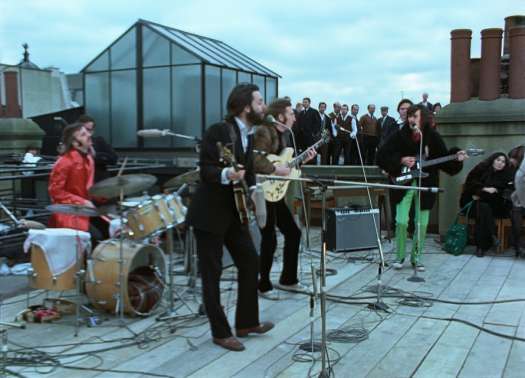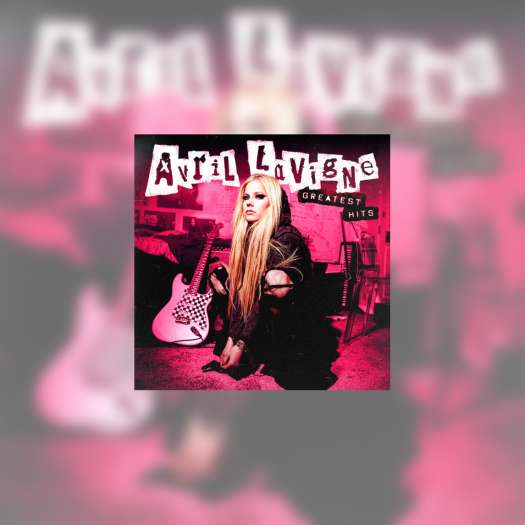It's easy to overlook things when you're a kid and the comic you're holding is packed with action and cool characters. The only thing that matters is that the good guys win. It's encouraging to see that kind of fairness in the world, even if it is only in a comic. Fans of G.I. Joe will tell you that it isn't the war scenarios that draws them to the book, it's the triumph of good over evil, the sense that truly important battles are being waged and the "right" side is winning.
When the first G.I. Joe comic appeared in 1982, the Cold War was heating up and then-President Ronald Reagan was waging a personal war on communism. Communism was a theme that peppered almost every issue of the comic. During his time in office, Reagan pursued a contradictory policy of federal tax cuts and a massive military buildup; abroad he was an anti-communist crusader. His aim was to rebuild American strength and self-confidence and exploit Soviet imperial overreach where he could. These anti-communist sentiments were regularly featured in the pages of G.I. Joe, though they weren't as readily deciphered as propaganda. When the Cold War ended, so did Joe's mission the book was cancelled.
What made G.I. Joe so popular wasn't the violence. Part of the reason for the comic's popularity stemmed from the kid-friendly attitude it portrayed. It taught those who read it about teamwork, respect and perseverance. Because of the range of characters with different personalities and abilities, there were lots to choose from. There is no such thing as a boring G.I. Joe comic, simply because the cast evolved constantly as did the situations they were placed in.
Author Larry Hama was brilliant in creating his characters for G.I. Joe. He shaped their personalities and gave them individual characteristics that have become archetypes in the comic world. They were ordinary people doing extraordinary things. They were superheroes without special powers and as the story progressed, he fleshed out their back-stories, deepening the readers' connection. This soap opera is comic form became ties amongst fans, for whom the fate of Snake Eyes's sensei was big news; for many, commonalities of fandom became bonds of friendship.
G.I. Joe, at least in its mythology, put forth messages of freedom, equality, opportunity and the power of the individual. Part American military might, part technological know-how, part good ol' perseverance, Joe became a perfect combination of bootstrap-pulling Americanism, part MacGyver adventure. Those kinds of things didn't happen in other comics, at least at the time (though Joe's template has been widely copied) which is why G.I. Joe was so cool.
This brings us to an interesting point. Although beloved, G.I. Joe is very frustrating to reread as an adult. The way America is portrayed in the comic is so completely absurd, it's difficult as a fan to take it seriously. It's upsetting to think that as children, these comics that we loved were actually saying something vastly different than the "fighting for freedom over land and air" jingle that was stuck in our heads. Although exposing children to propaganda at an early age isn't a new concept, it's different when you find out it's been attached to something you cherish. It's a harsh reality when you find that something you've grown up reading and loving is actually pro-American, when that isn't something you normally subscribe to.
Not co-incidentally, G.I. Joe returned when America needed him most. It was re-launched in September 2001, with the battle against terrorists replacing its 80s communist foes. Attacks on the United States occurred mere weeks after it hit the streets. As kids, we would gloss over implications behind the book's re-launch; as an adult, it's harder to swallow. Although there are many things to love about the book, the mere fact that it's been brought back as a new form of propaganda in some ways negates many of the fond memories associated with it.
Comic Nostalgia Gets Old Fast
Much of what we grew up with and enjoyed as children is being repackaged and sold back to us as adults. Old comic heroes that were once long forgotten are being revived and reworked to fit in with the change in times. Although it's wonderful to see old favourites back in action after so many years, why bring them back at all?
Part of the reason for the resurgence of 80s comics is because of Transformers. That's right, the big robots are to blame. When the new Transformers comic debuted two summers ago, it was such a huge success that police were called for crowd control at a signing held at Silver Snail Comics in Toronto. This major success has spawned a slew of old favourites back into print.
For many, the revival of comics that they grew up with is a touchy subject. At the time, they were appropriate reading material but now that we've grown up (somewhat) do they still apply? Are these still as great as we once remembered them?
Nope. A lot of the comics that have been redone just plain stink. He-Man is one of them. Whatever relevance he had in the 80s in long gone and that's a sad reality. Not pointing any fingers, but perhaps in the rush to cash in on nostalgia the folks in charge forgot something important: relevance. The new GI Joe series is more relevant because it deals with something that's important to America right now: terrorism.
In resurrecting comics from the past, it's difficult to keep the spirit of the comic intact while trying to take it in a new direction. So far, only a handful of them have been successful in this. Hopefully, the other books will take note of this and change their approach.
When the first G.I. Joe comic appeared in 1982, the Cold War was heating up and then-President Ronald Reagan was waging a personal war on communism. Communism was a theme that peppered almost every issue of the comic. During his time in office, Reagan pursued a contradictory policy of federal tax cuts and a massive military buildup; abroad he was an anti-communist crusader. His aim was to rebuild American strength and self-confidence and exploit Soviet imperial overreach where he could. These anti-communist sentiments were regularly featured in the pages of G.I. Joe, though they weren't as readily deciphered as propaganda. When the Cold War ended, so did Joe's mission the book was cancelled.
What made G.I. Joe so popular wasn't the violence. Part of the reason for the comic's popularity stemmed from the kid-friendly attitude it portrayed. It taught those who read it about teamwork, respect and perseverance. Because of the range of characters with different personalities and abilities, there were lots to choose from. There is no such thing as a boring G.I. Joe comic, simply because the cast evolved constantly as did the situations they were placed in.
Author Larry Hama was brilliant in creating his characters for G.I. Joe. He shaped their personalities and gave them individual characteristics that have become archetypes in the comic world. They were ordinary people doing extraordinary things. They were superheroes without special powers and as the story progressed, he fleshed out their back-stories, deepening the readers' connection. This soap opera is comic form became ties amongst fans, for whom the fate of Snake Eyes's sensei was big news; for many, commonalities of fandom became bonds of friendship.
G.I. Joe, at least in its mythology, put forth messages of freedom, equality, opportunity and the power of the individual. Part American military might, part technological know-how, part good ol' perseverance, Joe became a perfect combination of bootstrap-pulling Americanism, part MacGyver adventure. Those kinds of things didn't happen in other comics, at least at the time (though Joe's template has been widely copied) which is why G.I. Joe was so cool.
This brings us to an interesting point. Although beloved, G.I. Joe is very frustrating to reread as an adult. The way America is portrayed in the comic is so completely absurd, it's difficult as a fan to take it seriously. It's upsetting to think that as children, these comics that we loved were actually saying something vastly different than the "fighting for freedom over land and air" jingle that was stuck in our heads. Although exposing children to propaganda at an early age isn't a new concept, it's different when you find out it's been attached to something you cherish. It's a harsh reality when you find that something you've grown up reading and loving is actually pro-American, when that isn't something you normally subscribe to.
Not co-incidentally, G.I. Joe returned when America needed him most. It was re-launched in September 2001, with the battle against terrorists replacing its 80s communist foes. Attacks on the United States occurred mere weeks after it hit the streets. As kids, we would gloss over implications behind the book's re-launch; as an adult, it's harder to swallow. Although there are many things to love about the book, the mere fact that it's been brought back as a new form of propaganda in some ways negates many of the fond memories associated with it.
Comic Nostalgia Gets Old Fast
Much of what we grew up with and enjoyed as children is being repackaged and sold back to us as adults. Old comic heroes that were once long forgotten are being revived and reworked to fit in with the change in times. Although it's wonderful to see old favourites back in action after so many years, why bring them back at all?
Part of the reason for the resurgence of 80s comics is because of Transformers. That's right, the big robots are to blame. When the new Transformers comic debuted two summers ago, it was such a huge success that police were called for crowd control at a signing held at Silver Snail Comics in Toronto. This major success has spawned a slew of old favourites back into print.
For many, the revival of comics that they grew up with is a touchy subject. At the time, they were appropriate reading material but now that we've grown up (somewhat) do they still apply? Are these still as great as we once remembered them?
Nope. A lot of the comics that have been redone just plain stink. He-Man is one of them. Whatever relevance he had in the 80s in long gone and that's a sad reality. Not pointing any fingers, but perhaps in the rush to cash in on nostalgia the folks in charge forgot something important: relevance. The new GI Joe series is more relevant because it deals with something that's important to America right now: terrorism.
In resurrecting comics from the past, it's difficult to keep the spirit of the comic intact while trying to take it in a new direction. So far, only a handful of them have been successful in this. Hopefully, the other books will take note of this and change their approach.




